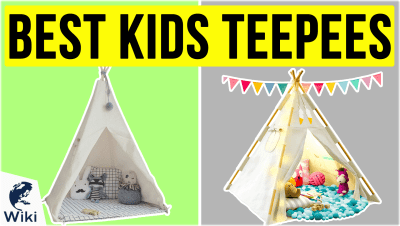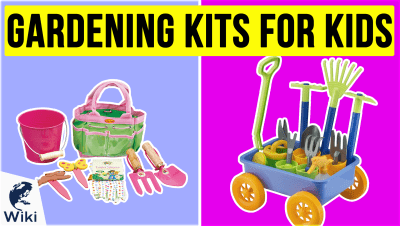7 Seattle Organizations That Help Vulnerable People Thrive
From poverty to homelessness to racial and gender inequality, there are a number of issues affecting vulnerable populations today. These problems can be daunting, but the only way to solve them is to face them head on. That's why the Seattle organizations listed here are dedicated to helping disadvantaged people, addressing both their immediate needs and the root causes of them. This video was made with Ezvid Wikimaker.
Benevolent Groups Helping People In Seattle
| Organization | Mission |
|---|---|
| Low Income Housing Institute | Develop and operate housing for the benefit of low-income, homeless, and formerly homeless people in Washington State; advocate for just housing policies at the local and national levels; and administer a range of supportive service programs to assist those served in maintaining stable housing and increasing their self-sufficiency |
| The Mockingbird Society | Transform foster care and end youth homelessness by creating, supporting, and advocating for racially equitable, healthy environments that develop and empower young people at risk of, or who are experiencing, foster care or homelessness |
| YWCA Seattle / King / Snohomish | Eliminate racism, empower women, stand up for social justice, help families, and strengthen communities, with programs that address both immediate needs and the root causes of that need |
| FareStart | Provide a community that transforms lives by empowering homeless and disadvantaged people and families to achieve self-sufficiency through life skills, job training, and employment in the food service industry |
| Rainier Scholars | Offer a pathway to college graduation for hard-working, low-income students of color by providing access to transformative educational opportunities |
| Seattle Foundation | Ignite powerful, rewarding philanthropy to make Greater Seattle a stronger, more vibrant community for all |
| YouthCare | Work to end youth homelessness and to ensure that young people are valued for who they are and empowered to achieve their potential |
Poverty In Seattle Statistics
- Estimated Population: 744,955
- Owner-occupied housing rate: 46.5%
- Median gross rent: $1,377
- Median household income: $79,565
- Poverty rate: 12.5%
- Childhood poverty rate: 11.9%
- Unemployment rate: 3.2%
5 Ways You Can Help Those In Need
- Support organizations like the ones listed above
- Stay informed on issues that affect vulnerable populations
- Call your Congressperson and let them know where you stand
- Donate items like clothes and shelf-stable food to a local organization
- Volunteer at a local shelter or soup kitchen
Racism in America
In Depth
Poverty, inequality, and discrimination are issues that affect people all across the nation and even the world. In Seattle, many non-profits work hard to help those in need, offering innovative solutions to address problems such as homelessness and unemployment. With that in mind, here, in no particular order, are seven Seattle organizations that help vulnerable people thrive.
First up, at #1, we have the Low Income Housing Institute, or LIHI for short. Founded in 1991, it owns and operates affordable, high-quality housing for homeless and low-income people in Washington State and advocates for just policies at the local and national levels. LIHI also has supportive services that help residents develop self-sufficiency, such as life skills and financial literacy training.
In partnership with the City of Seattle and various other organizations throughout the State of Washington, LIHI is one of the largest providers of Tiny House Village shelters in the nation, which provide safe spaces for the homeless as they work towards finding permanent housing and employment. It also operates the Urban Rest Stops, hygiene facilities that cater towards vulnerable individuals. Those who wish to support its mission may donate online or give supplies, such as clothing and hygiene products, to one of their Urban Rest Stops.
It also operates the Urban Rest Stops, hygiene facilities that cater towards vulnerable individuals.
Next, at #2, is The Mockingbird Society, an advocacy organization founded in 2000 that seeks to end youth homelessness and improve the foster care system. To address these issues, its Youth Programs train people who have been homeless or in foster care to be their own best advocates, using their experiences to identify and think of possible solutions to problems within their communities.
The organization works directly with elected officials and other policymakers to ensure that young people have the opportunity to present their ideas to those who have the power to act on them. Their annual Youth Leadership Summit also allows advocates to present their proposals to the Washington State Supreme Court Commission on Children in Foster Care and the Office of Homeless Youth Prevention and Protection Programs Advisory Committee. Those who want to support them may volunteer at one of their chapters or send a gift through their website.
At #3 is YWCA Seattle. Founded in 1894, the organization was originally created to provide services for women looking to establish self-support and stability. Since then, YWCA has expanded its operations to not only empower women, but also tackle issues, such as domestic violence, by advocating at the city, county, state, and federal level. The organization's Race and Social Justice Initiative also works to eliminate institutional racism and other discriminatory practices.
Since then, YWCA has expanded its operations to not only empower women, but also tackle issues, such as domestic violence, by advocating at the city, county, state, and federal level.
Addressing institutional and societal barriers that drive inequities in several fields, its programs seek to help both low-income men and women gain access to affordable housing, health care resources, and economic stability. Aside from donating, people who wish to get involved may volunteer to help with its ongoing tasks or contribute at YWCA's one-time events.
Next up, at the #4 spot, is FareStart, which strives to solve the problems of poverty, homelessness, joblessness, and hunger. By collaborating with local restaurants, it develops programs that not only provide meals to social services and shelters in Seattle, but also give participants valuable work experience and life skills that will help them succeed in the foodservice industry.
Its job training programs, which are free of charge to its students and apprentices, help the youth prepare for the future and support adults who have experienced hardship and are trying to turn their lives around. In 2011, FareStart launched Catalyst Kitchens, a network which ensures that organizations across the nation are properly equipped to solve problems in their respective communities. Help out by dining at one of its restaurants or by ordering items off its Amazon Charity List.
Its job training programs, which are free of charge to its students and apprentices, help the youth prepare for the future and support adults who have experienced hardship and are trying to turn their lives around.
Next up, at #5, we have Rainier Scholars, a community of passionate educators who seek to address the lack of men and women of color in leadership positions nationwide and help Seattle's low-income students gain admission to college and thrive as adults. Through its 12-year program, students are given the resources and support they need to succeed throughout their academic journey.
The 12-year journey starts at the fifth grade, where scholars go through a 14-month enrichment program designed to prepare hard-working students for more advanced content that they'll encounter later on. Once participants reach college, the organization provides them with academic and emotional support from their first day on campus all the way until graduation. Those who wish to support it may donate through its website.
At #6 is the Seattle Foundation. Believing that philanthropy is critical in aiding Seattle's growth and prosperity, the organization works with philanthropists to address the widening disparities between the rich and poor, creating a more vibrant community for all. It also offers a wide variety of grants to support local nonprofits whose work can make meaningful changes within the key areas of its Healthy Community Framework, such as basic needs and education.
It also offers a wide variety of grants to support local nonprofits whose work can make meaningful changes within the key areas of its Healthy Community Framework, such as basic needs and education.
The Seattle Foundation helps philanthropists by identifying their values and interests and using its expertise to devise giving plans that are personally rewarding and measurable. Its specialized services, such as Impact Investing and Scholarship Funds, also allow partners to select a level of service they need based on their goals and strategies. Individuals who wish to help may either donate or apply for one of the organization's job openings.
Finally, at #7, is YouthCare, which works to ensure that all young people have the opportunity to reach their full potential and never have to experience homelessness in their lives. Its many services are tailored towards its clients' needs, whether it be access to an emergency shelter and support staff or education programs that ensure their academic success and long-term stability.
With the belief that the best way to end youth homelessness is by preventing it from happening in the first place, YouthCare has services that engage and support at-risk young people, with a specialized focus on individuals who have experienced discrimination, juvenile detention, foster care, or sexual exploitation. It also advocates at the federal, state, and local level, focusing on issues such as social justice and education. Those who wish to show their support may host a drive for their currently needed items.



















